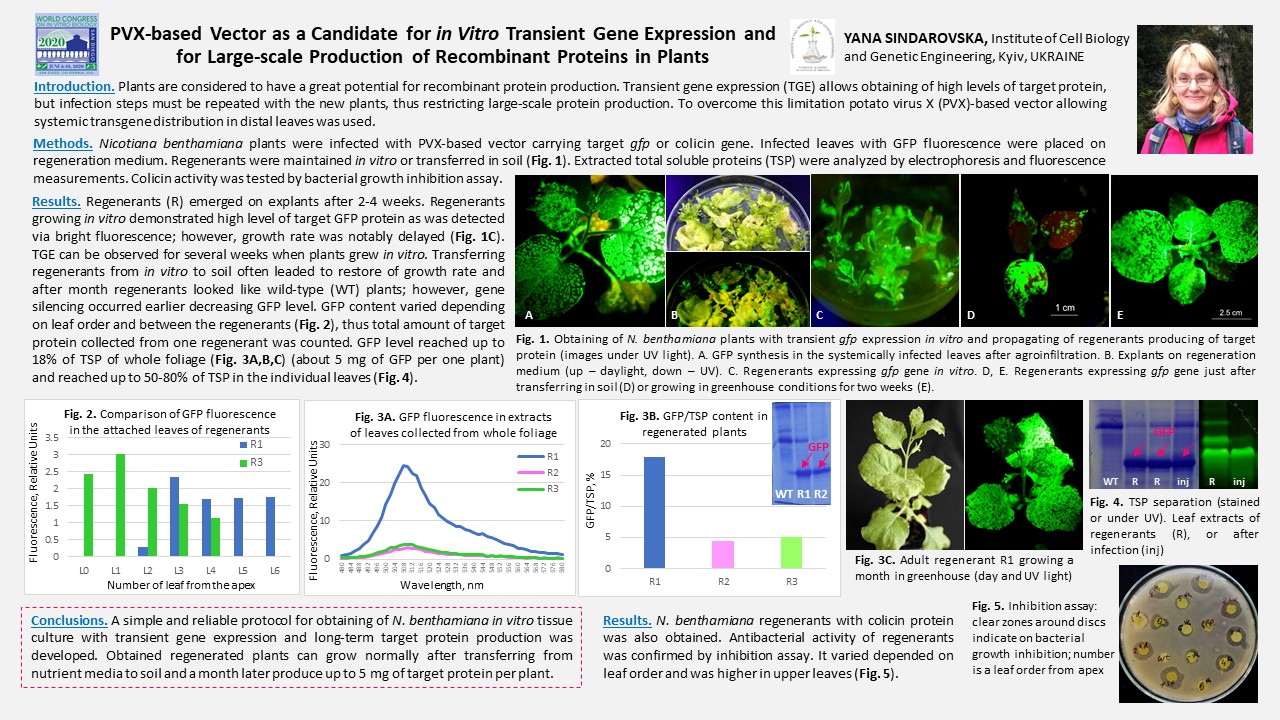Earlier this summer I participated in the virtual 2020 World Congress on In Vitro Biology organized by The Society for In Vitro Biology that was planned to be held in San Diego, CA, USA on June 6-10, 2020.
Despite the fact that the meeting was transformed to a virtual format, my impressions about the event are incredibly positive. The organizers chose a pre-recorded format for the Congress and extended the event time for one week. As presentations were pre-recorded, I did not worry about the time shift between the US and Ukraine and I could watch the presentations at any convenient time during the two weeks, I could pause the presentation to make some notes or to read the details. Unfortunately, we could not see or talk with the presenters directly, but the “Question and Answer” option was available.
The sessions were divided into two main topics: plant and animal in vitro biology. My preference was plant biology. The plant session encompassed plenary and poster presentations about practices in tissue culture, micropropagation, genetic transformation of different species, gene editing, machine learning and image analysis, recombinant protein production, and secondary metabolism. Cannabis is forbidden for any purposes in Ukraine, but it is a legal plant (mainly for medical uses) in some US states and Canada, so in many studies in vitro cannabis production was discussed.
Almost all the presentations were interesting, and I got a lot of useful information for practical application. My favorite presentations were about image analysis and machine learning (R. Niedz, US), smarter propagation RoBoCut (S.V. Rundstedt, Germany), carbon storage in soil using plants with deeper roots (W. Busch, US), plant growth regulator carry-over effects on micropropagation (M. Kane, US), production of erythropoietin in tobacco cells (U. Karki, US), engineering rice with enhanced yield (T. Sage, Canada), ways to reach successful micropropagation (C. Sluis, US) and others.
I presented my own work in the poster session on plant biology. It was a pleasure to know that participants showed interest in my poster, and more than 30 people had viewed it.
Now I know that even virtual events can be useful and informative and I will participate in other virtual conferences while the coronavirus pandemic restricts our movements.
- Yana Sindarovska, Research Fellow, Institute of Cell Biology and Genetic Engineering of National Academy of Science of Ukraine


